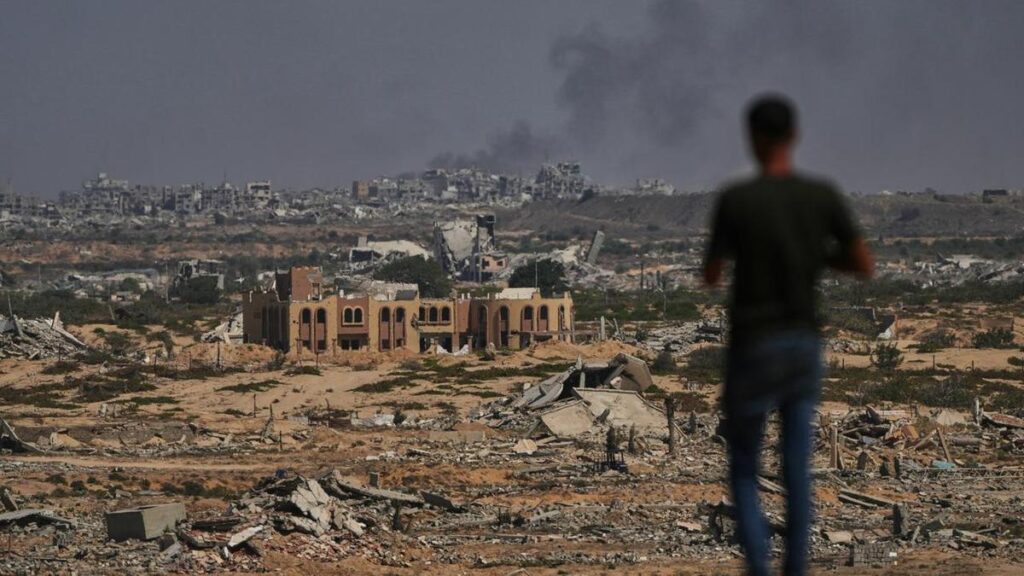
Efforts to resolve the ongoing conflict in Gaza are gaining momentum following Hamas’s submission of its lists of hostages and Palestinian prisoners for a potential exchange. The shift in negotiations coincides with the anticipated arrival of senior representatives from Israel and the United States at talks initiated on March 11, 2024, in an Egyptian resort on the Red Sea.
Donald Trump, the former president of the United States, has emphasized a 20-point plan aimed at ending hostilities. He has dispatched his son-in-law, Jared Kushner, along with special envoy Steve Witkoff, to participate in these discussions. Israeli Prime Minister Benjamin Netanyahu has sent his close associate, Strategic Affairs Minister Ron Dermer, to join the delegation. They are expected to arrive on March 13, along with Sheikh Mohammed bin Abdulrahman al-Thani, the prime minister of Qatar, a significant mediator in the region.
While the plan enjoys broad international backing, critical components remain unresolved, including the timing of any ceasefire, the establishment of a post-war administration for Gaza, and the future of Hamas as a governing authority. Following a violent escalation initiated by Hamas’s attack on Israeli territory two years ago, the group has expressed optimism about the latest negotiations.
Hamas has indicated that the list of Palestinian prisoners it seeks to have released includes some of the most well-known detainees in Israel. Notably, the list reportedly features Marwan al-Barghouti, a prominent figure in the Fatah movement, and Ahmed Saadat, leader of the Popular Front for the Liberation of Palestine. Both individuals are serving long sentences for incidents involving Israeli casualties.
The discussions are currently focusing on three main issues: halting the conflict, withdrawing Israeli forces from Gaza, and finalizing the prisoner exchange. A significant sticking point persists regarding Israel’s demand for disarmament of Hamas, which the group has categorically rejected while Israeli troops occupy Palestinian territories.
In Gaza, the intensity of Israeli military operations has somewhat diminished, a shift reportedly influenced by Trump’s interventions. Despite this, airstrikes continue, leading to eight fatalities in the last 24 hours, marking the lowest casualty rate in recent weeks. Jehad al-Shagnobi, a resident whose home was destroyed, expressed the urgent need for a ceasefire, stating, “We hope from God that a ceasefire would take place as soon as possible, because people can’t bear the suffering anymore.”
Trump’s proposal suggests the establishment of an international body to oversee Gaza’s post-war governance, potentially led by Trump himself and including former British Prime Minister Tony Blair. While Arab nations have voiced support for the plan, they stress that it should ultimately lead to the establishment of an independent Palestinian state. Netanyahu, however, remains firm in his opposition to such outcomes.
Even if an agreement is reached during the talks, the future governance of Gaza remains uncertain. Both Netanyahu and Trump, along with various Western and Arab nations, have ruled out any role for Hamas in a post-conflict administration. Hamas has indicated a willingness to cede governance but only to a Palestinian technocratic government supervised by the Palestinian Authority and supported by Arab and Muslim nations, in line with a long-standing Egyptian proposal.
As the conflict continues, global condemnation of Israel’s military actions has intensified. Multiple rights experts, scholars, and a United Nations inquiry have characterized the situation as genocidal. In contrast, Israel defends its military operations as acts of self-defense following the October 7, 2023 attacks by Hamas, which resulted in the deaths of approximately 1,200 individuals and the abduction of 251 hostages.
The ongoing negotiations in Egypt represent a critical juncture in efforts to establish peace and alleviate the suffering of those affected by the war. The international community watches closely as the stakes remain high for both sides amid a backdrop of widespread humanitarian distress.







